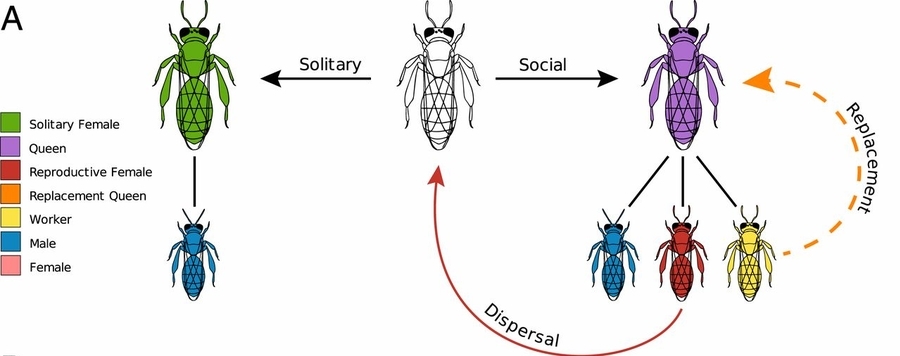
Developmental plasticity shapes social traits and selection in a facultatively eusocial bee
Developmental plasticity generates phenotypic variation, but how it contributes to evolutionary change is unclear. Phenotypes of individuals in caste-based (eusocial) societies are particularly sensitive to developmental processes, and the evolutionary origins of eusociality may be rooted in developmental plasticity of ancestral forms. We used an integrative genomics approach to evaluate the relationships among developmental plasticity, molecular evolution, and social behavior in a bee species (Megalopta genalis) that expresses flexible sociality, and thus provides a window into the factors that may have been important at the evolutionary origins of eusociality. We find that differences in social behavior are derived from genes that also regulate sex differentiation and metamorphosis. Positive selection on social traits is influenced by the function of these genes in development. We further identify evidence that social polyphenisms may become encoded in the genome via genetic changes in regulatory regions, specifically in transcription factor binding sites. Taken together, our results provide evidence that developmental plasticity provides the substrate for evolutionary novelty and shapes the selective landscape for molecular evolution in a major evolutionary innovation: Eusociality.





